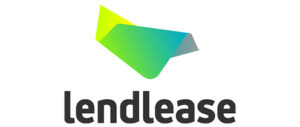Previous slide
Next slide

Spotlight On
CEW 2023 scholar
“My advice to any woman considering the application for a CEW scholarship is to be bold and go for it.” Keren Paterson, CEW scholar.
Keren just came back from completing an Adanced Management Program at INSEAD in France. Read about her experience.
0
FULL-TIME
WORKERS AVAILABLE IF WE
HALVE THE WORKFORCE
PARTICIPATION GAP
$
0
BILLION
GENERATED EVERY YEAR
BY CUTTING GENDER
INEQUALITY AT WORK IN HALF
1
+
MEMBERS
WORKING TO
ACCELERATE CHANGE
CEW Towards 2033
Play Video
Leadership Programs

An inspiring and empowering pathway to enable women to become unique and distinct leaders of the future. Developed to equip women to fulfill their leadership potential.

Our scholarships program provides education opportunities and networks for emerging women leaders at defining moments in their career.

Designed for senior women seeking C-suite and Non-Executive Director roles where the ability to demonstrate impact and have resonance is critical.
Discover More
Supported By












